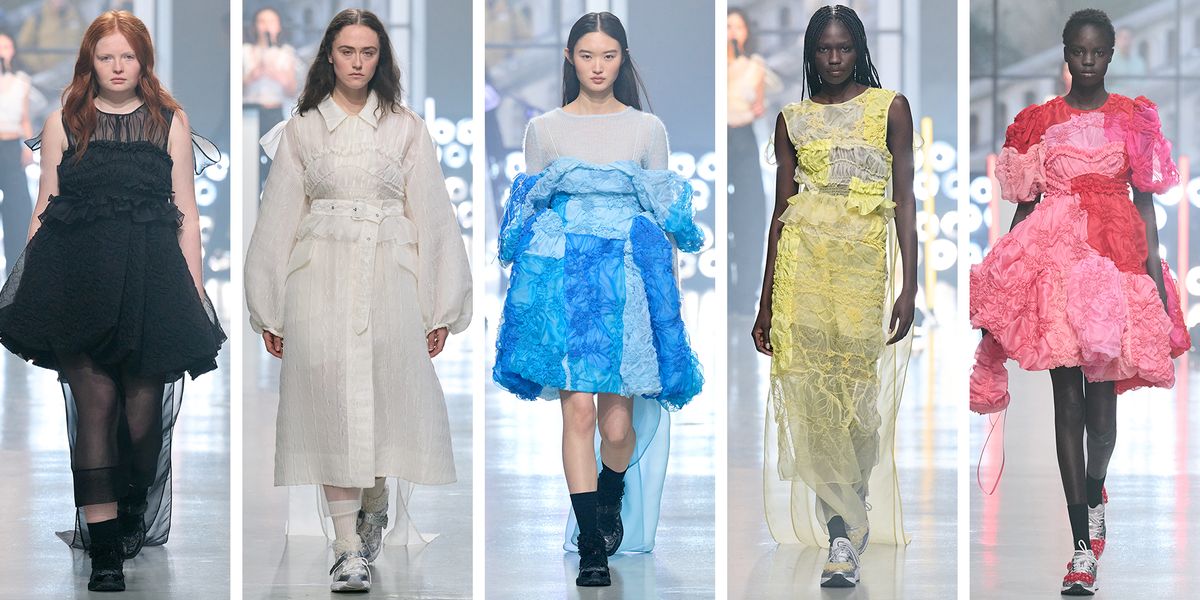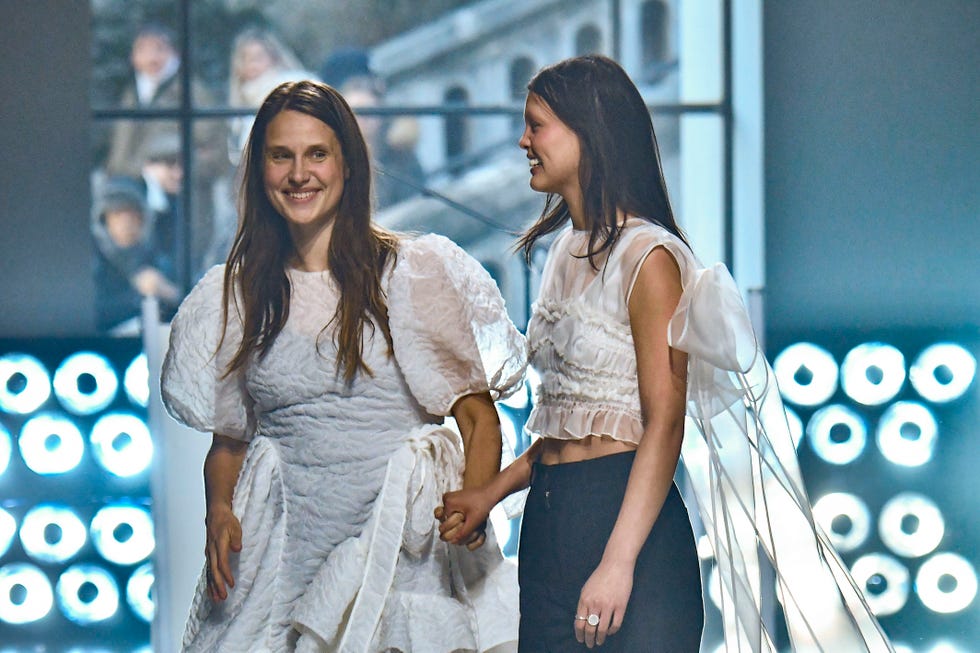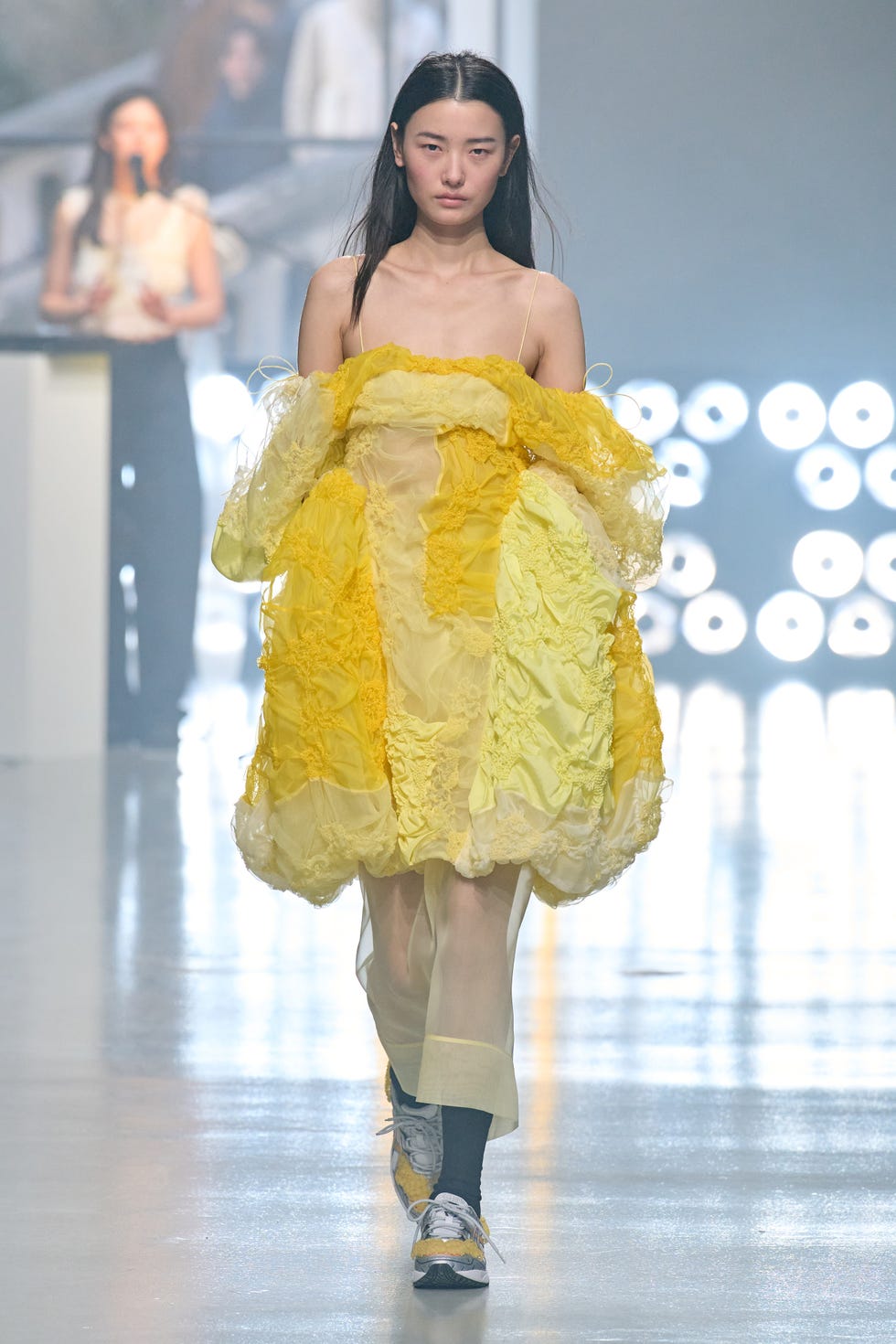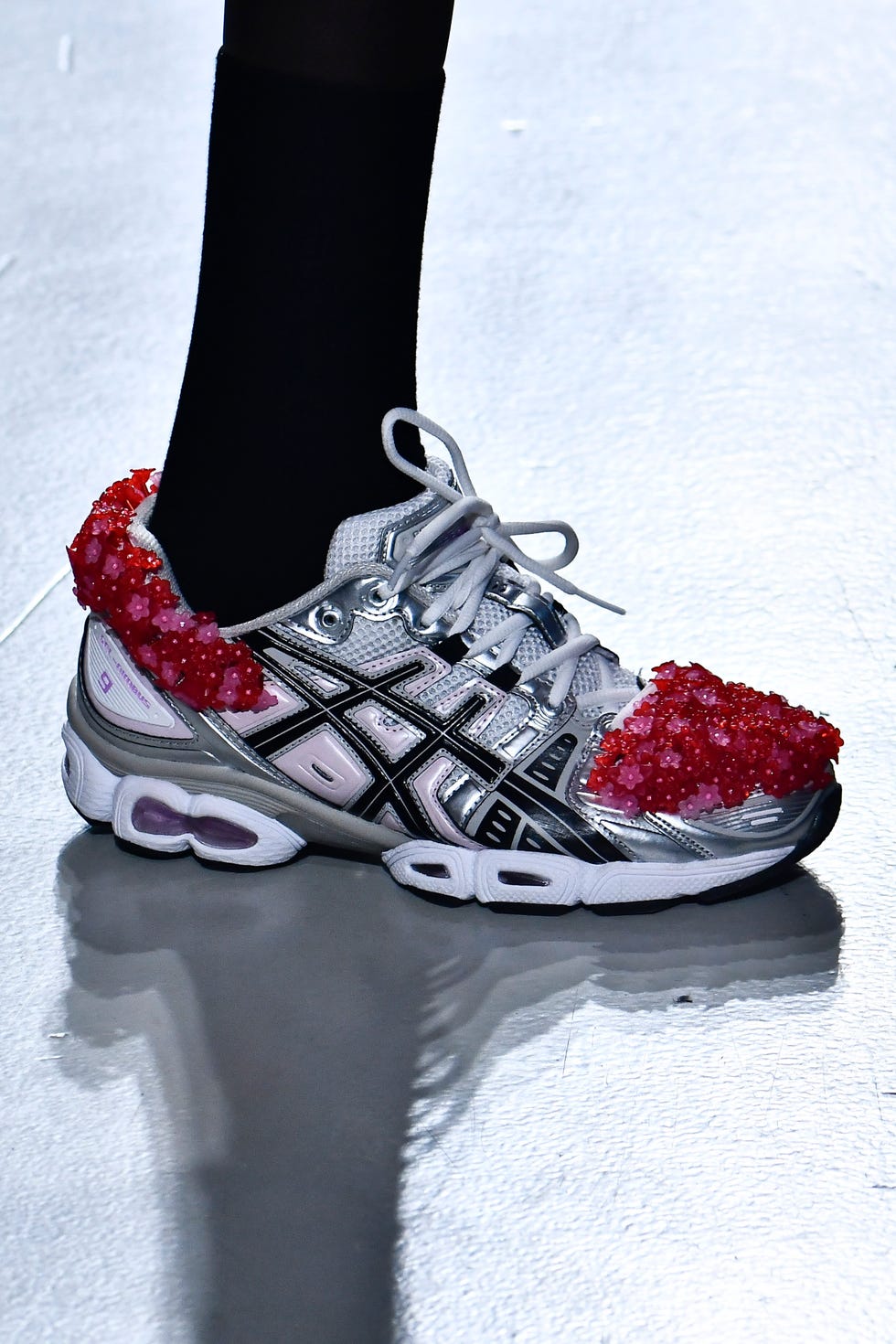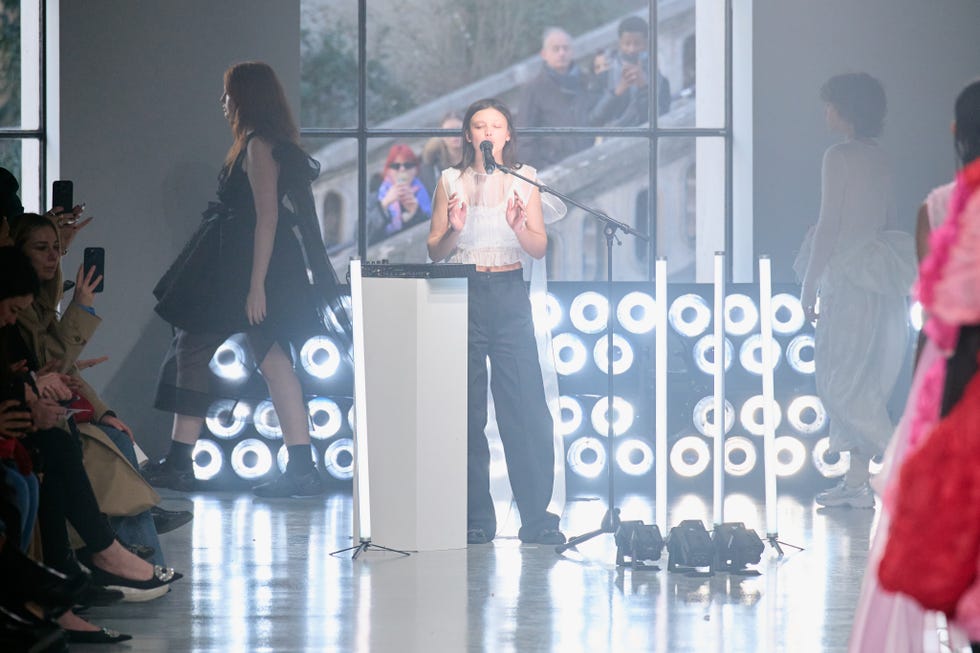Products You May Like
A Cecilie Bahnsen dress is impossible to miss. Romantic, voluminous, and every bit as dreamy as a fairy tale, the Danish designer’s unique creations are works of art that can be worn for each and every occasion.
And at Paris Fashion Week, inside an airy whitewashed gallery nestled in the city’s bustling Marais district, girls wearing a panoply of breezy, maximalist dresses in blacks, whites, and powder blues—coolly layered over jeans and Uniqlo base layers—are busying themselves taking orders from buyers. Days earlier, they’d been prepping looks, making final adjustments, orchestrating the line-up, and shooting content while a tiny child (belonging to stylist Emelie Johansson) played with an iPad on the floor, happily noshing on half a cucumber the size of her forearm.
It’s the day after Bahnsen’s fall/winter 2023 show, and her collection—fresh off the Palais de Tokyo runway, running the gamut from lemon pastel and sunflower yellow through cerulean blue to rose blossom and magenta red—is now displayed on mannequins. In the lead-up to the show and sales period, the Copenhagen-based creative, best known for the aforementioned frocks, transports her whole team to the French capital—lock, stock, and a couple of gently whirring sewing machines. “My team is like an extended family—we eat lunch together everyday—so this feels like a family trip,” Bahnsen tells ELLE.com.
Having begun her career as an assistant under John Galliano in Paris, Bahnsen got her master’s degree in womenswear at London’s Royal Collage of Art and spent three years working at British label Erdem before launching her namesake brand in 2015 in her native Denmark. The line received instant acclaim, and she’s since segued from leading the Copenhagen Fashion Week schedule to showing in the big leagues at PFW, where she’s now in her third season.
Bahnsen dubs her oeuvre “everyday couture”—one that combines the romance and craftsmanship of Parisian ateliers with London’s creative energy and Denmark’s heritage in design and architecture. However, while one might draw comparisons with London designer Simone Rocha for those pumped-up volumes, it’s Bahnsen’s clean, contemporary Scandinavian aesthetic and infinite lightness of touch that sets her apart.
The label—independent thanks in part to support from the Danish Arts Council—is on track to hit $10 million in sales this year, with global stockists like MatchesFashion, and moved into a new headquarters in Copenhagen’s design district in May (“when the weather is clear, you can see all the way to the ocean,” Bahnsen says). Recently, it launched a New York office, relocating two members of the team, including its international head of sales.
The latest collection places an increased emphasis on wearability—while retaining Bahnsen’s whimsical DNA comprised of color and flourishes—with a more grown-up, elevated air.
“This season, the silhouettes were a lot slimmer, so it had a more sophisticated femininity to it, as well as being more mature, with a bit more attitude than before,” Bahnsen says of layered pencil skirts embracing multiple body shapes—her signature organza ruched and smocked for stretch and comfort.
Likewise, the offering has become more rounded and extensive, with elevated utilitarian pieces in Japanese raw denim—jackets given a kick thanks to pannier pockets, and top-stitch tailored pants with pin-tuck pleats at the front—plus, delicate knitwear in recycled cashmere and merino wool. The goal, Bahnsen says, is “to keep pushing what we do and evolving our universe.”
How her own team styles her pieces is a continued source of inspiration—Bahnsen decided to launch denim when she saw girls in her office wearing their dresses over jeans, while the idea for last season’s asymmetric designs came from one who would use a ribbon to tie her skirt to one side when she was biking to work.
After launching bags for spring, fall 2023 boasts a full sneaker collection with Japanese sportswear outfit Asics—last season, she embellished upcycled stock with floral appliqués, creating 50 one-of-a-kind pieces that sold out within two minutes of dropping on her website. “The sneakers are such a technical product, but Asics really embraced the femininity of our brand with the florals and the transparency,” Bahnsen says.
Sustainability is integral to Bahnsen’s brand, which is working increasingly with leftover materials from previous seasons—manipulated and patchworked together. “It’s about taking something two-dimensional and making it 3D by adding the volume,” she enthuses. “It lets us add our own touch to something that already exists.”
In fact, a selection of fall’s organzas and taffetas hails from Nona Source (the LVMH-backed initiative that centralizes excess stock from the group’s houses, making it available for use by younger labels), with which Bahnsen has recently started working. Next, she’ll be scoping out fabrics from Dior and some of the group’s other partners, and plans to add resale into the mix later this year, seeking to “create pieces to be loved and cherished and passed on like furniture and design.”
The Palais de Tokyo show featured a live performance from French musician Suki, known for her confessional “bedroom dream pop,” and a simple-yet-effective LED lighting concept which changed color according to the outfits that appeared on the runway. The idea, derived from the German notion of gesamtkunstwerk, meaning “total work of art,” mirrors the ethos of the Cecilie Bahnsen brand—a living, breathing, cycling organism, grounded firmly in everyday life.
